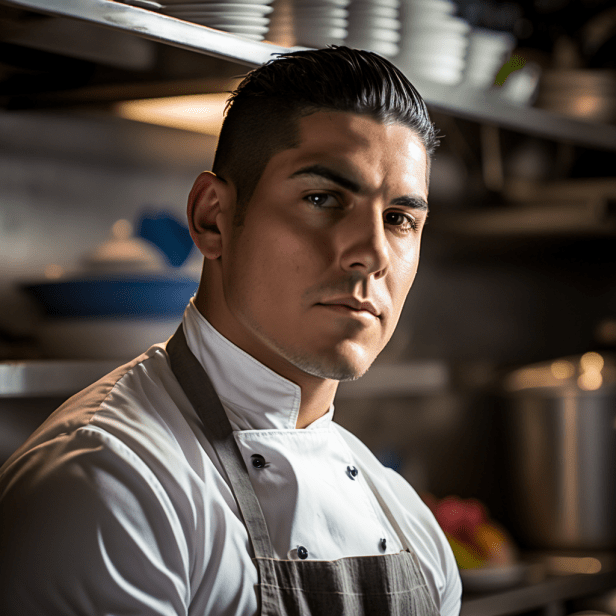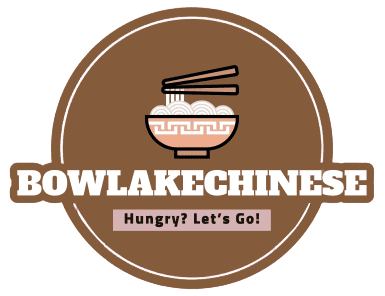Can celiacs eat chinese food? Hey there, friends!
As a chef and a well-known journalist, we often get asked the question “can celiacs eat Chinese food?
” We know how tough it can be to navigate a menu when you have celiac disease, and we want to help make things easier for you.
That’s why we’re creating this content, to provide you with information and tips that will help you enjoy Chinese food without worrying about gluten.
We understand how important it is to create delicious meals that are safe for everyone to enjoy, and we’re here to share our first-hand experience with you.

Can Celiacs Eat Chinese Food?
Explanation of Celiac Disease
As a chef and food lover, I know how importaglunt it is to understand celiac disease.
Celiac disease is an autoimmune disorder in which the ingestion of gluten damages the small intestine, leading to malabsorption of nutrients.
Gluten is a protein found in wheat, barley, and rye, which means people with celiac disease need to avoid anything containing these ingredients.
Did you know that celiac disease affects approximately 1% of the global population?
That’s roughly 1 in 100 people.
Celiac disease can be difficult to diagnose because the symptoms can vary from person to person.
Some people experience digestive problems, while others may have skin rashes, joint pain, or fatigue.
However, one thing is certain, the only treatment for celiac disease is a strict gluten-free diet.
Living with celiac disease can be challenging, but it is possible to manage with the right knowledge and support.
It’s essential to learn how to read food labels and identify hidden sources of gluten, such as soy sauce, seasoning mixes, and even some medications.
One useful tip is to stick to whole foods, such as fruits, vegetables, meats, and fish.
These are naturally gluten-free and are less likely to cause problems.
Additionally, there are many gluten-free substitutes available for traditional wheat-based products, such as pasta, bread, and flour.
However, be careful when trying gluten-free alternatives, as some may contain high amounts of sugar, fat, or sodium.
Importance of following a gluten-free diet
If you have celiac disease, following a strict gluten-free diet is crucial for your health and wellbeing.
Gluten is a protein found in wheat, barley, and rye that can cause severe damage to the small intestine of people with celiac disease.
In fact, just a small amount of gluten can trigger an autoimmune response that can last for weeks and even months.
Not following a gluten-free diet can lead to a range of health problems, including malnutrition, anemia, osteoporosis, and even cancer.
In addition, celiac disease can affect people in different ways, and many individuals may not experience any noticeable symptoms, making it even more critical to follow a strict gluten-free diet.
The good news is that there are plenty of gluten-free options available, and a well-planned gluten-free diet can provide all the necessary nutrients for good health.
Gluten-free foods can be found in most grocery stores, and many restaurants now offer gluten-free options on their menus.
However, it’s important to note that some gluten-free products can be highly processed and may not be as healthy as their gluten-containing counterparts.
It’s important to read labels carefully, choose whole foods as much as possible, and consult with a registered dietitian to ensure that your gluten-free diet is balanced and healthy.
By following a gluten-free diet, you can manage your celiac disease, improve your overall health, and prevent potentially serious health complications.
If you have celiac disease or suspect that you may have it, talk to your doctor or a registered dietitian to learn more about following a gluten-free diet.
Tips for Eating Gluten-Free at Chinese Restaurants
Do your research: Before heading to a Chinese restaurant, do some research online to find out if they have a gluten-free menu or if they are able to accommodate gluten-free requests.
- Ask questions: Don’t be afraid to ask your server questions about the menu and the ingredients used in each dish.
Be sure to let them know that you have celiac disease or a gluten intolerance.
- Avoid deep-fried foods: Many Chinese dishes are deep-fried, which can pose a risk for cross-contamination with gluten-containing foods.
Stick to dishes that are steamed or stir-fried.
- Opt for rice-based dishes: Rice-based dishes, such as fried rice or steamed rice, are usually safe options for those following a gluten-free diet.
- Beware of sauces: Many Chinese dishes contain soy sauce, which is made with wheat and therefore not safe for those following a gluten-free diet.
Be sure to ask your server about the ingredients in each sauce used in the dishes you are considering.
Bring your own soy sauce: If you can’t live without soy sauce, consider bringing your own gluten-free soy sauce to the restaurant.
CONCLUSION
So, can celiacs eat Chinese food?
Absolutely!
While it may seem daunting at first, with a little bit of knowledge and preparation, you can enjoy all your favorite Chinese dishes without worrying about gluten.
Remember to communicate with your server or chef, choose simple dishes with basic ingredients, and avoid deep-fried items.
And if you’re feeling adventurous, try making some of our favorite gluten-free Chinese recipes at home!
We hope this guide has been helpful for you and that you’re feeling more confident and excited about enjoying Chinese food.
As always, we’re here to help and happy cooking!
Was this helpful?

I am a skilled chef assistant with a passion for Asian cuisine, I have honed my craft through formal training at At-Sunrice GlobalChef Academy and years of experience in the culinary industry. I have extensive knowledge of cooking techniques and herbs and spices, with a particular focus on traditional Chinese dishes. I’m also an author of the book “Delicious Keto Low Carb Chinese Food for Busy Moms and Fitness Enthusiasts” which is sold on Amazon. On my blog, bowlakechinese.com, I share my expertise in Asian cuisine and provide tips and recipes for those interested in low carb Chinese cuisine.
